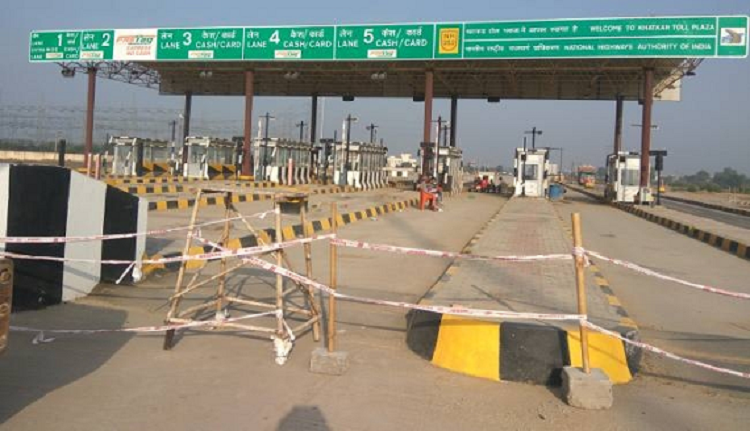
Education and Sexual harassment at Workplace, how effective is law (POSH) ?
What is the relation between education and sexual harassment at Workplace? Generally, it should be higher the education and lower should be the case of sexual harassment of women. But, its contradictory, higher the education and rate of literacy the number of complaints are high in number too.
Among the educational institution, the Delhi University tops the list and among the states, it is Kerala, with hundred per cent literacy and a state where women can be called empowered in the best possible sense.
When it comes to divorce, again Tamil Nadu tops the list, with Chennai, earning the infamous badge of divorce capital of India, followed by developed and rich states like Gujarat, Maharashtra, and Kerala etc.
The same is true for the case of domestic violence and dowry deaths. The states like Bihar and Uttar Pradesh, known for high rates of crimes are better placed vis a vis developed and educated states of India., when it comes to situation of crime against women.
Thus, there was a huge need of enacting a law to prevent crime against women especially at workplace to provide safe working environment. It took over 16 years to implement the directions of Supreme Court of India in 1997, in the landmark case of Visakha vs. State of Rajasthan[1] (“Visakha Guidelines”) to enact a law for the prevention of sexual harassment of women at the workplace.
This act is unique in the sense that for the first-time new jurisdiction was not imposed on an already burdened judicial infrastructure. The job of receiving and inquiring into complaints of sexual harassment was left to Internal Complaint Committee (IC), which is to be constituted at every workplace, a mandatory requirement under the act.
The Indian Penal Code (“IPC”) was simultaneously amended by inserting Section 354A to make sexual harassment a criminal offence.
But the moot question is the practical and effective aspect of implementation of the act (POSH), in the organisation. Let’s discuss it one by one.
Definition
The definition of sexual harassment is similar in the Act and the IPC.
Limitation
Under the Act, the limitation period for filing a complaint with the IC is three months from the date of the incident. Whereas, for cognizance of a complaint by a Court under Section 354A of the IPC, the limitation period is three years from the date of the incident, as provided under Section 468 of the Code of Criminal Procedure, 1973 (“CrPC”).
Investigation
The Act allows for parallel proceedings under the Act and the IPC, though such parallel investigations come with their own set of challenges. There are possibilities that the same witnesses may give completely different versions of the event(s) before the IC and the police.
This would require the IC to go strictly by the evidence recorded by it and not get influenced by the parallel criminal proceedings, if any. However, this won’t excuse the IC from cooperating with the police’s investigation, and to provide any document they demand under Section 91 of the CrPC.
Legislative Scheme
Under the Act, an ‘aggrieved woman’ is a woman of any age, whether employed or not, alleged to have been subjected to the act of sexual harassment. The definitions of ‘employer’ and ‘workplace’ under the Act are wide enough to cover every possible organisation and workplace in the private and public sectors. In Malabika Bhattacharjee v. Internal Complaints Committee, Vivekananda College and Ors[2]., it was also clarified that sexual harassment allegations under the Act are maintainable against an individual of the same gender as well.
The Act gives the IC the same powers as are vested in the Civil Court under the Code of Civil Procedure, 1908 (“CPC”), limited to summoning and production of documents.
As per the Rules, the IC is required to adhere to the principles of natural justice while making an inquiry. Below are a few principles of natural justice that need to be followed:
The principles of natural justice are critical in order to come to a just conclusion, especially when the adjudication is done by a quasi-judicial body. However, in many circumstances, the IC members do not have any legal background, and therefore, lack adequate experience to undertake such inquiries. The Act and the Rules themselves lack clarity and are not descriptive enough for a reasonable man to carry out quasi-judicial functions.
Hence, it is critical that adequate training is provided to the IC members – to enable them to duly discharge their responsibilities specified under the Act. This requirement of training has also been emphasised by the judiciary time and again.
Since the enactment of the Act, the judiciary has laid down certain important principles, that have aided in the interpretation of the Act and have facilitated its implementation.
In Rashi v. Union of India and Another the Delhi HC clarified certain requirements that need to be followed by the IC regarding its constitution and functioning: and the Visakha Guidelines should continue to guide the IC and should be followed rigorously.
The SC in Delhi University & Anr. v. Bidyug Chakraborty and Ors. reiterated the importance of privacy of the witnesses’ identity in sexual harassment cases. On the other hand, the Delhi HC in Ashok Kumar Singh v. University of Delhi & Ors laid down a detailed procedure to allow fair opportunity to the delinquent to cross-examine the witnesses while maintaining their identity confidential.
IC shall make every endeavour to supply a copy of the cross-examination of the complainants’ witnesses to the delinquent on the same day (of questioning) or at the earliest, in any case before cross-examination of the next witness;
- After completion of cross-examination of the complainants’ witnesses, the delinquent would be permitted to lead defence evidence. The delinquent shall submit the examination-in-chief of the defence witnesses to the IC. Copies of the statements of the delinquent’s witnesses shall immediately be made available to the complainant;
- After completion of the cross-examination of the witnesses of the delinquent, parties shall be given a personal hearing by the IC.
The IC members are not expected to follow the technical rules of the CPC and the Indian Evidence Act, 1872 while recording evidence, or admitting/denying documents, since the sexual harassment inquiries are not strictly ‘judicial’ in nature. However, the expectation to follow the principles of natural justice is clear, which implies that there is a duty to act in a fair and reasonable manner.
Implementation Challenges
. Lack of expertise of the IC
The law has cast the onus of implementation of the Act and Rules on the IC, which has been given the powers of the Civil Court to carry out the enquiry and examine the evidence. In practice, IC members have little to no experience in handling such sensitive and judicial complaints. As a result, many of the enquiry reports are challenged in the High Courts by way of writ petitions filed under Article 226 of the Constitution.
Many of these reports are set aside for not following the principles of natural justice, which the IC members might not be familiar with in the first place. This appears to be a fundamental design flaw in the Act and the Rules. The IC is responsible for conducting an enquiry, result of which may have a life-changing impact on the aggrieved as well as the accused.
- Corner Office Harassment
There have been instances where the IC members are hesitant to conduct a fair enquiry when the complaint is against the company’s senior management, such as the CEO/ CFO, etc. This is a practical difficulty in implementing the Act, which raises doubts about the impartiality/ objectivity of the IC members.
- Confidentiality
The employer is obligated to maintain strict confidentiality. The Act provides that any information relating to the inquiry shall not be communicated or made known to the public, press, or media in any manner. However, in practice, it has been found that information invariably gets leaked within the organisation, or in the media, putting undue pressure on all the parties involved, including the IC members.
- How to deal with electronic evidence?
One crucial issue relates to the manner in which the IC should deal with electronic evidence – in the form of Whatsapp chats between the victim and the accused, video recordings, etc. On many occasions, the Whatsapp chats between the victim and the accused are exported to email, and printed copies are provided to the ICC.
Given that the IC proceedings are not strictly ‘judicial’ in nature, the strict rules relating to admissibility of electronic evidence prescribed under Section 65B of the Indian Evidence Act, 1872 will not be applicable. Hence, the requirement of obtaining a ‘certificate’ when secondary copies of the electronic records are produced (such as email copies of the WhatsApp chats) will not per se be applicable.
However, in such situations, can the ICC automatically rely upon such email copies, if the authenticity/ veracity of the same has not been disputed by the accused? Will the IC have an obligation to independently verify whether the extracts of the WhatsApp chats are accurate, and have not been tampered with? Another question that arises is whether the IC’s obligation to independently verify the authenticity of such secondary copies will arise only when it is disputed by the accused?
Given the significance of electronic evidence in the current day and age, it is imperative that these unanswered questions are settled by a conclusive pronouncement of the SC.
What should be the role of organisation?
It is advisable for employers to take all efforts to create awareness about their POSH Policy and to ensure its implementation across the organisation. Organisations must regularly conduct training and awareness programs, not only for women employees but also for the IC members.
IC, being the fulcrum of the Act, it must be trained and educated with legal knowledge and practices to carry out its quasi-judicial responsibilities. Amending the Act to mandate the appointment of at least one member of the IC with legal background, would be a step in the right direction.
Dr. Ajay Kummar Pandey
( LLM, MBA, (UK), PhD, AIMA, AFAI, PHD Chamber, ICTC, PCI, FCC, DFC, PPL, MNP, BNI, ICJ (UK), WP, (UK), MLE, Harvard Square, London, CT, Blair Singer Institute, (USA), Dip. in International Crime, Leiden University, the Netherlands )
Advocate & Consultant, Supreme Court of India & High Courts
4C Supreme Law International, Delhi, NCR. Mumbai & Dubai
Tel: M- 91- 9818320572. Email: editor.kumar@gmail.com
Website: www.ajaykr.com, www.4Csupremelawint.com
Facebook: /4Clawfirm, /legalajay/ Linkedin: /ajaykumarpandey1/ Twitter: /editorkumar / YouTube: c/4cSupremeLaw/ Insta: /editor.kumarg
Your free access to Supreme Law News has expired
For further details contact:
Dr. Ajay Kummar Pandey
( LLM, MBA, (UK), PhD, AIMA, AFAI, PHD Chamber, ICTC, PCI, FCC, DFC, PPL, MNP, BNI, ICJ (UK), WP, (UK), MLE, Harvard Square, London, CT, Blair Singer Institute, (USA), Dip. in International Crime, Leiden University, the Netherlands )
Advocate & Consultant Supreme Court of India, High Courts & Tribunals.
Delhi, Mumbai & Dubai
Tel: M- 91- 9818320572. Email: editor.kumar@gmail.com
Website:
www.supremelawnews.com
www.ajaykr.com, www.4Csupremelawint.com
Facebook: /4Clawfirm, /legalajay Linkedin: /ajaykumarpandey1 Twitter: /editorkumar / YouTube: c/4cSupremeLaw Insta: /editor.kumarg
Telegram Channel
Whatsup Channel











